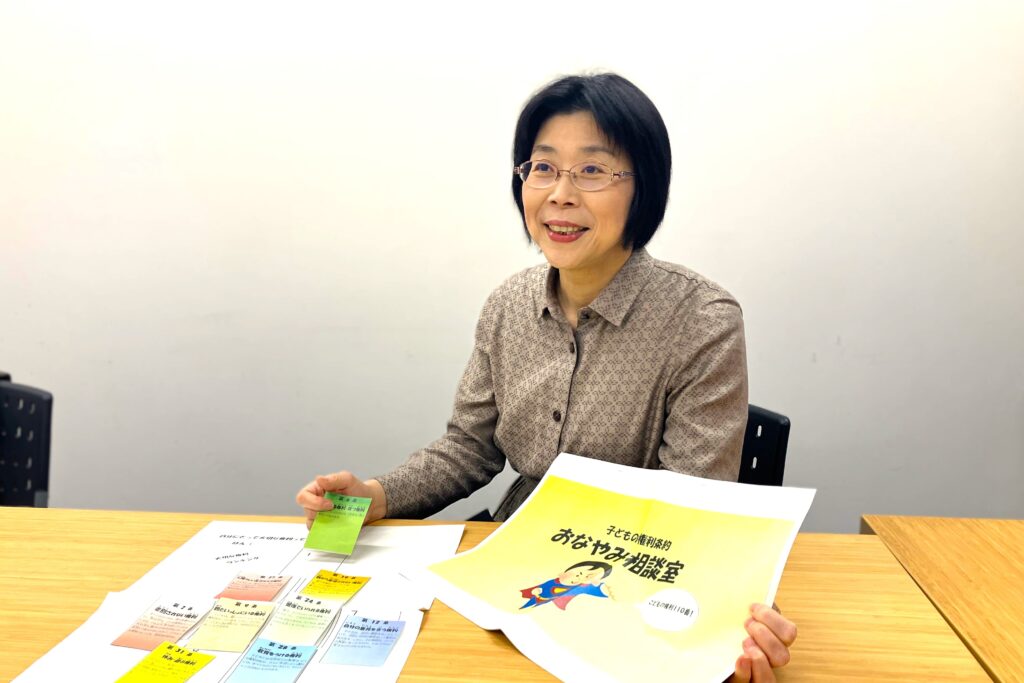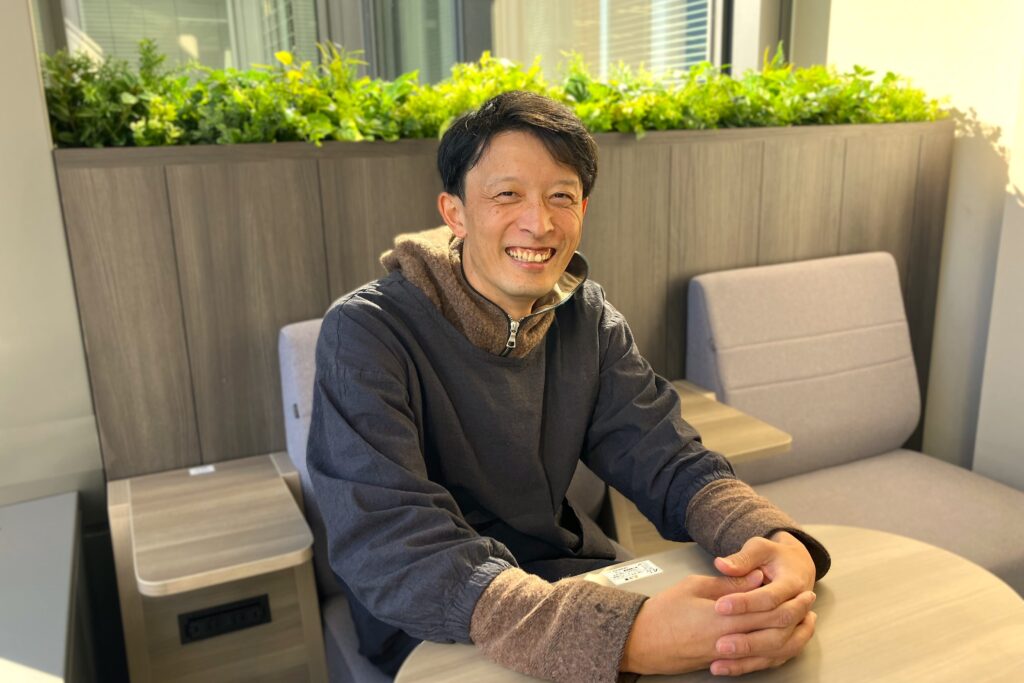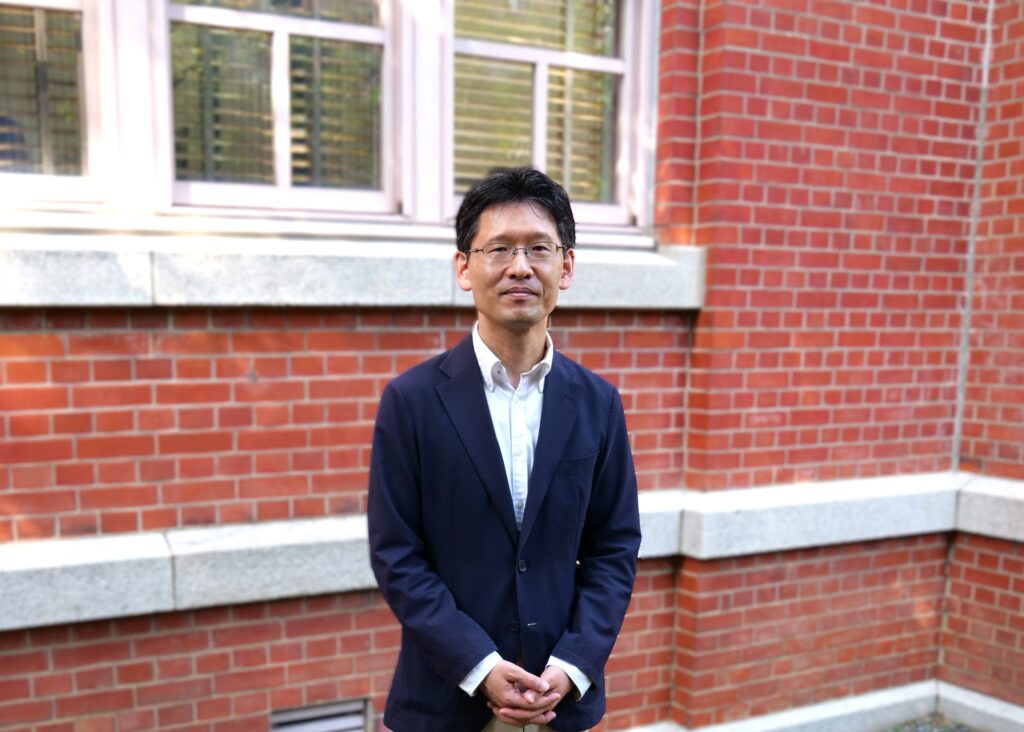Bringing together knowledge from a variety of fields to change society through "education for living"
We spoke with Professor Kanae Nishioka of Kyoto University, project leader of "Research, Development and Dissemination of Educational Approaches to Overcome the Cycle of Poverty, Inequality and Abuse," about the social issues she sees, how the project was launched, and her thoughts on the project.
The project page isHere.

The problems children face are issues that the whole of society must address
In Japan, one in seven children live in relative poverty.(*)This situation has continued for a long time. Today's children are the adults of the future, so child poverty is a social issue that will have a major impact on the future. It is an urgent social issue that needs to be addressed now.
I think of social issues as "issues that affect the entire society and have a serious impact on the lives and happiness of individuals." Social issues such as abuse, bullying, discrimination, and poverty arise from structural imbalances and injustices in society. Although each of us is involved, these are issues that cannot be solved by one person alone, so I believe that they should be tackled by the entire society.
(*)Measures to Address Child Poverty(Ministry of Health, Labour and Welfare)
Approach from school education: "Education for living"
The SMBC Kyoto University Studio project will approach the social issues of "child poverty, inequality, and abuse" through school education. In fact, I myself used to think that "problems such as child poverty and abuse are welfare issues and cannot be addressed through school education." However, in 2021, I saw a documentary program about the practice of "education for living" at Ikuno Minami Elementary School (now Tajima Minami Elementary and Junior High School), and my thoughts changed dramatically.
Before the "Education for Living" program was introduced, children at Ikuno Minami Elementary School who had suffered trauma from abuse were extremely "unruly" and seemed to have no hope for the future. However, thanks to the efforts of the teachers at Ikuno Minami Elementary School, they were able to overcome this unruly behavior and achieve an improvement in academic performance. Furthermore, "Education for Living" was developed as a pillar of the school's efforts to raise children's self-esteem.
"Education for Living" is an educational program that aims to help children acquire the knowledge necessary to solve "difficulties in life" and develop safe values by having serious discussions with their friends. It aims to help children maintain an appropriate distance from others, form their own identity, and acquire the ability to ask for help when in trouble. While researching "Education for Living", I came to believe that there are things that school education can do to address children's problems, including abuse, and that in fact it is school education that must address them.
At Ikuno Minami Elementary School, the issues facing the children happened to be easily visible, but problems such as bullying and harassment exist in ordinary schools and in adult society. Therefore, I think that there is a need to put "education for living" into practice in a wide range of fields.

Connecting various fields through the "Living Education" network
The teachers at Ikuno Minami Elementary School and Tajima Junior High School (currently Tajima Minami Elementary and Junior High School) have been researching teaching materials for many years, making use of various research findings. As a result, many very attractive and effective "Living Education" programs have already been developed. Using these existing programs as a base, we would like to expand the content and concept of "Living Education".
The Graduate School of Education Collaboration Center for Educational Practice, where I serve as the director, has a network called E. FORUM, with over 2,000 school teachers and people related to the Board of Education registered as members. First, we will utilize this network to provide training sessions and study groups on "education for living." We also want to create a system to provide lesson plans, teaching materials, and teaching aids that are easy to put into practice, so that the burden on teachers who are putting the ideas into practice can be reduced.
Furthermore, we would like to create a network among practitioners of "education for living" by inviting participation from school nurses, school counselors, social workers, childcare workers, children's homes and child independence support facilities, medical professionals, and NPOs involved in child support. Utilizing the international network of Kyoto University Graduate School of Education faculty, we will also conduct overseas research on related themes. By doing so, we hope to bring together the knowledge gained in each field and create a movement that will change society as a whole.


